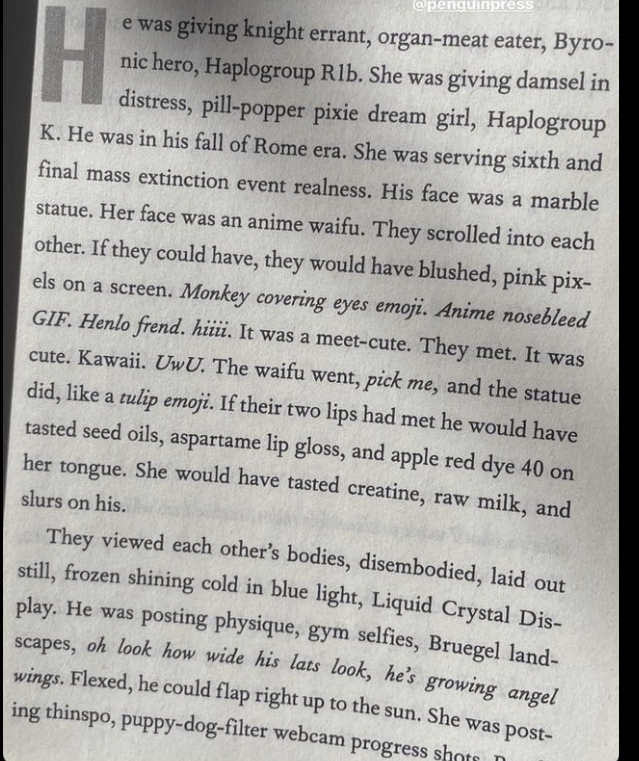the_dunk_tank
It's the dunk tank.
This is where you come to post big-brained hot takes by chuds, libs, or even fellow leftists, and tear them to itty-bitty pieces with precision dunkstrikes.
Rule 1: All posts must include links to the subject matter, and no identifying information should be redacted.
Rule 2: If your source is a reactionary website, please use archive.is instead of linking directly.
Rule 3: No sectarianism.
Rule 4: TERF/SWERFs Not Welcome
Rule 5: No ableism of any kind (that includes stuff like libt*rd)
Rule 6: Do not post fellow hexbears.
Rule 7: Do not individually target other instances' admins or moderators.
Rule 8: The subject of a post cannot be low hanging fruit, that is comments/posts made by a private person that have low amount of upvotes/likes/views. Comments/Posts made on other instances that are accessible from hexbear are an exception to this. Posts that do not meet this requirement can be posted to !shitreactionariessay@lemmygrad.ml
Rule 9: if you post ironic rage bait im going to make a personal visit to your house to make sure you never make this mistake again
view the rest of the comments

I think a part of it is the homogenisation of the industry. People tend to write novels that publishers want to publish, and a part of that involves doing what is thought to make people more likely to read, like starting off with a hook and shorter, more direct sentences. A novel is a product first and foremost these days, not something someone writes solely as a creative endeavor.
I've been reading Tanith Lee books recently and really enjoying them, and read that her career was pretty emblematic of this.
She wrote weird fiction. Fantasy, scifi, horror, thrillers, etc. She hopped from genre to genre and would write books that had a very ambiguous genre (if a story is scary and has the story beats of a horror novel but it takes place in a traditional sword and sorcery setting is it horror or fantasy? Or both? I think Tanith Lee found this question very tedious.). In the 70s and 80s she was writing an absurd number of books and getting them published, but in the 90s paper became much more expensive and as this reduced the profit margins on books and increased number of copies sold to be profitable she started to get more and more pushed out of traditional publishing.
Nobody wanted to publish a ton from an author who wouldn't stay in one lane to build a dedicated fanbase of "fantasy fans" or "horror readers" and they definitely didn't want to risk selling a fantasy novel that wasn't clearly a fantasy novel. She got a bit published during this time but mostly her rejected manuscripts just piled up. It's not even that her books hadn't been profitable, they're just didn't fit into the neat categories that publishers now wanted. Blacklisted due to falling just outside of risk management guidelines for writing books that people would just call "dark fantasy" now probably.